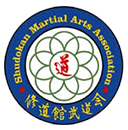Japanese Martial Arts: the Spiritual Dimension
By Davey, H. E.This article first appeared in the "SMAA Journal" Volume 20, Issue 1.
Did you know that martial arts aren’t just for sport?
Have you been looking for a way to connect with your spiritual self?
Japanese martial and cultural arts have been growing in popularity around the world for decades. In the West, many people practice flower arrangement, bonsai, tea ceremony, shiatsu, and budo. Despite their wide popularity, however, Japanese arts are often misunderstood and distorted in the West.
What are the underlying aesthetics of the Japanese martial arts? Some arts are touted as effective forms of “moving meditation,” but how exactly do they function in this manner? What about the often-mentioned but usually unexplained “spiritual dimensions” in the Japanese martial arts?
Studying with a knowledgeable instructor, like teachers certified by the SMAA, can reveal important and little understood aspects of these disciplines.
Harmony of Mind and Body
Despite outward differences, most Japanese arts share certain aesthetics; and more importantly, they demand the acquisition of related positive character traits for their successful performance. Notice that many of the names for these arts end in the Japanese word Do. Do means “the Way,” and its use in these names indicates that an activity has surpassed its utilitarian purpose and has been elevated to the level of art, that its students are practicing it as a Way of life. In sum, a Do is an art that allows us to understand the ultimate nature of the whole of life by closely examining ourselves through a singular activity of life: to arrive at the universal through studying the particular.
Leaders and Followers
To look to another for the truth is to bypass the Way of the universe that’s right before our eyes. It is trying to see through the eyes of another and thus fated to result in delusion: the follower thinks she or he has seen the truth—whereas it is at best only a reflection of it—and the leader figures he or she must be doing something right because of the worshipful demeanor of the followers. The connection between such leaders and followers is, unfortunately, shared delusion. Still, many opt for following others, because looking for the truth invariably involves a leap into the unknown. And it’s a leap we each must make by ourselves.
In short, we are each responsible for our own spiritual progress. While a skilled and knowledgeable sensei is a must, don’t expect this person to simply give you spiritual awareness. It can’t be done.
A Lifelong Path
Considering the relatively large turnover of Western students, looking into how to study a Japanese martial art and combat “culture shock” is something you need to consider. SMAA Senior Advisor Dave Lowry has written a number of fine books that would be useful to someone contemplating the study of Japanese martial arts as more than mere recreation. Nicklaus Suino Sensei’s Budo Mind and Body is another book to check out, along with Stephen Fabian Sensei’s Clearing Away Clouds: Nine Lessons for Life from the Martial Arts.
Books by these SMAA leaders, and the works of other experienced authors, can give you useful information about how to find a sensei that can help you accomplish more than learning a few falls and throws. Check out their books to learn more about what a traditional teacher will expect from you and how to successfully negotiate the hurdles faced by newcomers to authentic Japanese martial arts.
Such research will help you to practice martial arts as a lifelong endeavor, which is an essential component for approaching these disciplines as shugyo—a form of spiritual training. The spirituality of all the classical Japanese art forms— from flower arrangement to budo—reveals itself through an ongoing process of practice that lasts a lifetime. It is a process that cannot be revealed in a short article, but it offers sincere students something immensely valuable, something that can transform their lives and benefit the lives of people around them.
Become a Part of a World Martial Arts Association
If this article resonates with you, then it’s time to begin your martial arts journey. SMAA is proud to be a world martial arts association and a source of authentic Japanese teachings. To get started, call (734) 729-0330 or contact us here.

